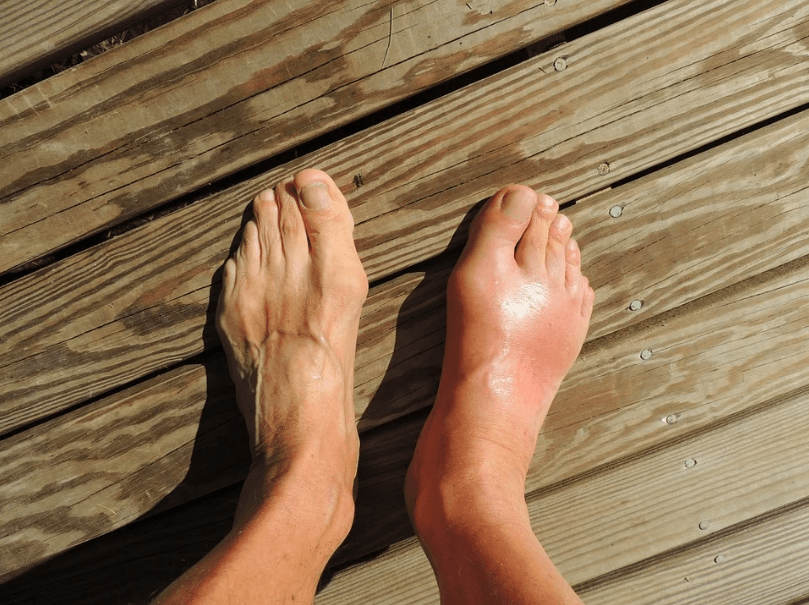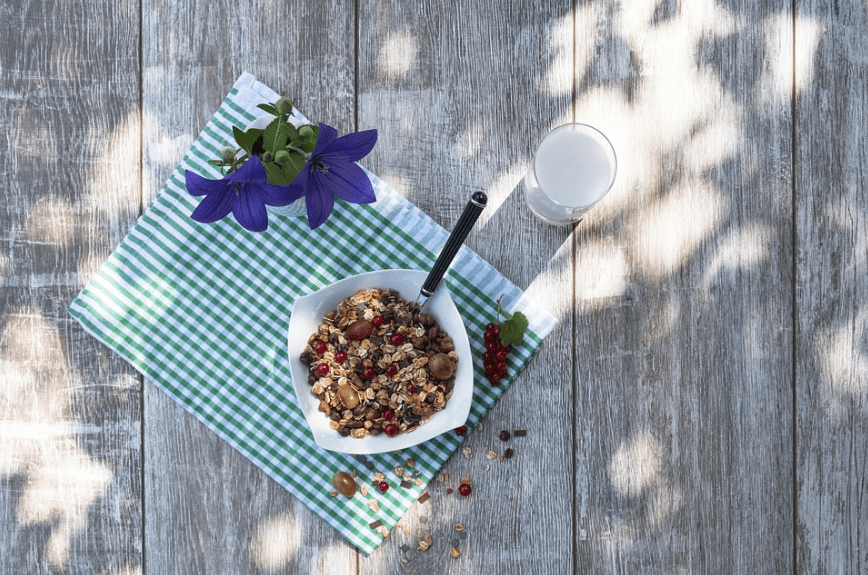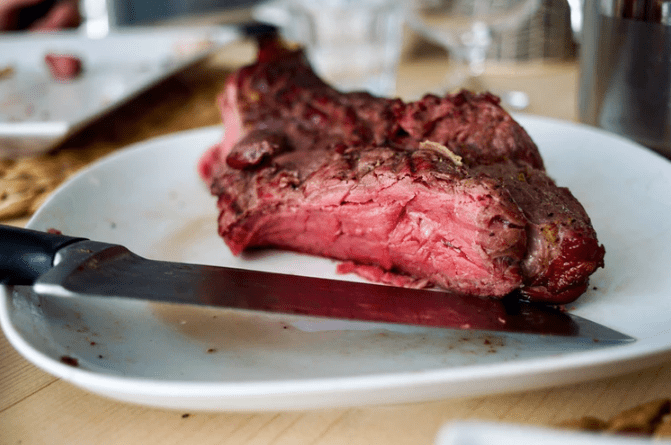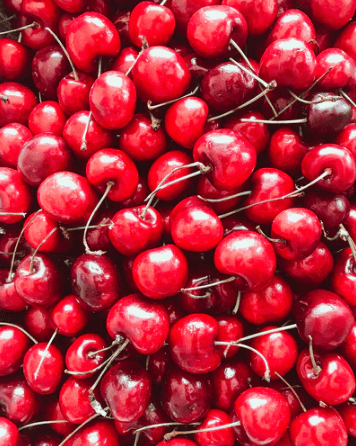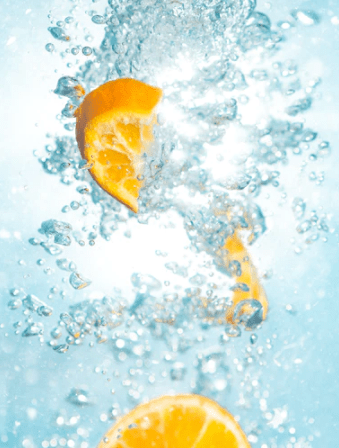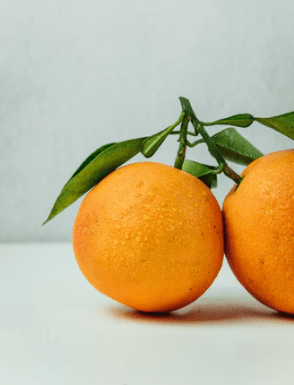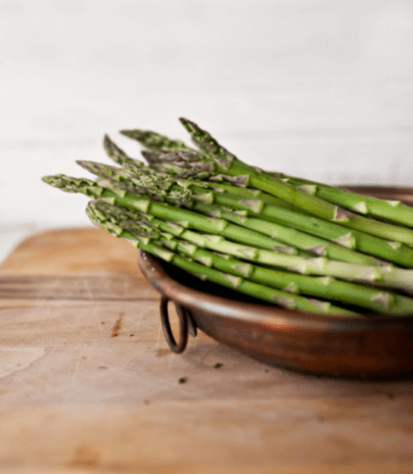Before discussing the diet of gout patients, let us have a glance at gout. What is gout? How to treat it? What happens when you are a gout victim? Do you have to be careful if you have gout? If so, why?
Gout is an inflammatory condition of joints because of the overload of uric acid in the body. Excess of uric acid deposits in joint tissues as monosodium urate crystals. This deposition leads to an inflammatory reaction of the joint, leading to pain and swelling of the joints. Initially, the attacks are short-term and are self-limiting. The initial attacks include a big toe, and the condition is called podagra. The condition is recurrent and gradually causes long-term damage to the joints if not treated, causing ultimate deterioration of the joints.
There may be two reasons behind the increase in body uric acid pool. One is excess production, and the other is restricted excretion by the kidney. The chief and the predominant cause is kidney malfunction which causes the buildup of uric acid in the body and ultimately into the joint tissues.
Flares
As mentioned, gout is a recurrent condition, and it comes with flares. To reduce the incidence of flares, some lifestyle modifications need to be opted to maintain the normal body levels of urate.
Lifestyle Modifications Needed in Gout
When we talk about diseases, we think of medical or pharmacological modifications as their basic and core management. But this is not so in every case. In the majority of joint and other medical conditions, the initial and preferable mode of management is via non-pharmacological measures. They include diet, exercise, lifestyle, and other similar daily routine chores. Similar is the case with patients with gout. The initial and basic management can be done by just basic lifestyle changes. Though people don’t remain consistent and try to escape this routine, these cases call for medical management.
Lifestyle modifications include activities like weight loss. Most gout patients are obese when observed in studies. You have to be conscious about your weight if you are experiencing this problem. Being overweight increases the risk of recurrence, and that needs to be reduced. Studies showed that individuals involved in physical activities and exercises were less likely to have flares.
So, try to reduce weight by improving your diet and remaining active throughout the day.
Best Diet for Gout
You have to be vigilant when it comes to your health. Dalai Lama quoted that the highest form of happiness is health. What else you want when your mind and body are healthy? So, be kind to yourself at least.
Some important requirements of dietary modifications are listed ahead. Read and follow them all for having a better life without being entirely dependent on medications.
Goal
The goal of diet modification is to have a balanced serum urate level. This will prevent it from being saturated, and thus the risk of flares or recurrence is reduced.
1. Avoid Alcohol
Alcohol is known to be devastating to health in general if taken in a large amount, but it also increases gout flares. This is because when the body breaks down alcohol, purines are released, which are converted to uric acid. Therefore, if you are a drinker, you should reduce alcohol consumption in your diet.
2. Reduce the Consumption of Red Meat, Fish, and Shellfish
These foods are purine-rich, and you have to be careful in terms of purine intake. Help yourself by consuming them in low quantities and not often. Be away from red meat and thus at a distance from the pain.
Purines derived from animal sources have a higher incidence of causing gouty flare than those taken from vegetables.
3. Consume Cherries
There have been studies on the relation between cherry consumption and the incidence of flares. It concluded that having 1 to 3 servings of cherries in 48 hours decreased the recurrence by 35 to 45%. So, be generous in having cherries as much as you can.
4. Stay Hydrated Especially in Summers
There has been a relation between dehydration and increased incidence of gout flares. Flares are not easily tolerable. Hence avoid them as much as you can by having an adequate proportion of water and hydrating yourself.
Make sure to keep your electrolyte level within normal ranges. Be a fighter and fight with the condition you got.
5. Increase Vitamin C in Your Diet
Researches have stated that having vitamin C in your diet helps you avoid or at least decrease the incidence of flares of gout. To gain the desired results, the ordinary concentration of vitamin C doesn’t work. Therefore, more than 500mg of vitamin C per day is required.
Vitamin C is present in citrus fruits like oranges and lemon. Other natural sources of vitamin C include broccoli and strawberries.
6. Coffee
Having coffee, caffeinated or decaffeinated, reduces the risk of flares. Researches are still going on to confirm, but some studies say that coffee reduces the risk and intensity of flares. Decaffeinated coffee is preferred for this purpose.
Other Dietary Recommendations
Some other foods have been favored for gout patients as they help prevent the saturation of serum urate levels. This helps reduce the risk of flares.
- Sugar-sweetened soft drinks should be avoided. They cause an increase in the risk of flares and worsen the condition.
- Foods like soybeans, non-soy legumes, and fresh fruits, if taken greater than 2 portions a day, worsen arthritis. They provide an immense supply of proteins to the body and thus elevate the serum level of uric acid.
- Skimmed milk powder can decrease the frequency of flares.
- Though eggs are protein-rich, moderation of eggs in diet is recommended for gout patients.
- Low-fat and non-dairy items are healthy, and you can rely on them without hesitation.
- Some vegetables are purine-rich in nature, but they have not been seen to raise the serum urate level. These include spinach and asparagus.
Control Obesity
Along with an adequate diet, gout patients should be concerned with controlling their obesity. People with poor eating habits become obese. Patients should try to lose weight by involving themselves in exercise and opting for an appropriate diet. This will lower the raised urate levels and normalize the condition.
Physical Activity
It is a common practice that when patients suffer from some kind of medical problem, especially that of joints, they become sedentary. Being in bed 24/7 further increases your weight that will increase the loading of joints. Excessive loading of joints causes their deformation, leading to pain. When the normal shape of the joint is deformed, it will not function normally.
Gout patients who work, are physically fit, and active are less likely to get gout flares.
Treating Gout Shouldn’t Become Difficult
When you can cure yourself by the easiest non-pharmacological ways, why curse your body with medications? Just opt for the best diet prescribed and live a healthy and painless life. Every medicine has one or more side effects. So, go for natural and correct ways to help yourself stay out of pain and gout flares.
Schedule your day accordingly, and do not let yourself eat out of the box. Choose health over malign eating habits.
However, this does not mean that pharmacological therapy should never be done. It is for educating gout patients and their community that gout flares can also be controlled with diet and exercise. So, opt for these options and then go for medications unless you need them. Go in a stepwise fashion and stay healthy.

